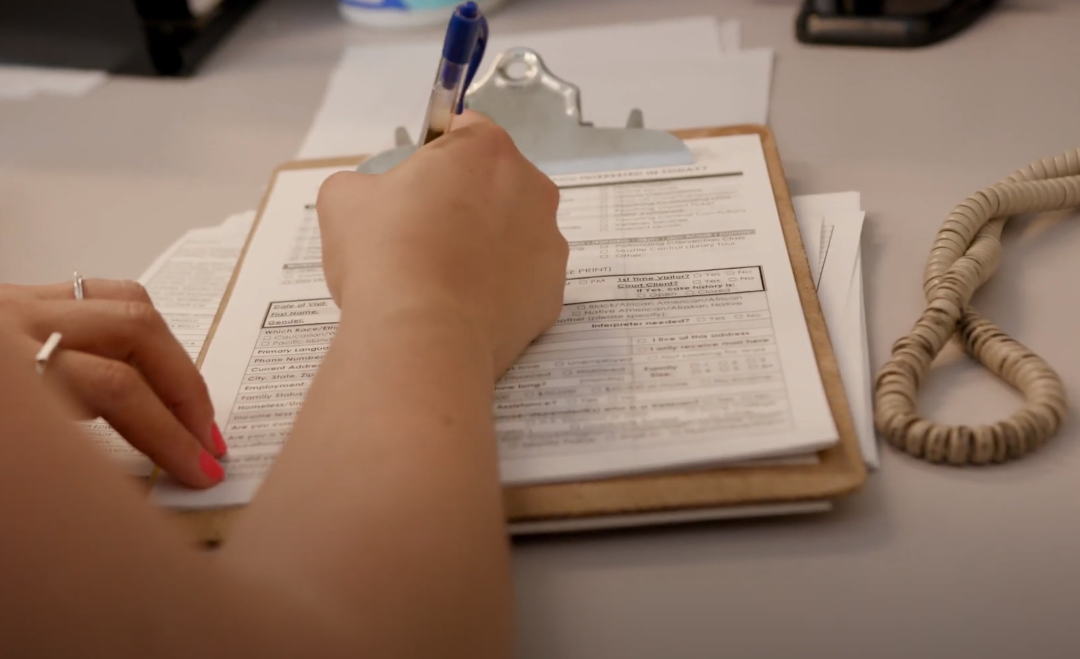
In June 2020, Seattle Municipal Court released an evaluation of our Probation Services department commissioned from the Vera Institute of Justice. Aligning with national best practices, the report laid out recommendations to help evolve SMC Probation Services and most effectively serve our clients. We are committed to implementing the report’s recommendations to improve services and further our court-wide commitment to increase equity in the criminal legal system.
Our Programs and Services Division, which includes Probation Services, underwent a lot of change in 2020 and this restructuring is continuing into 2021 with a focus on the following goals:
- Focus on high-risk case types: Prioritize probation referrals on domestic violence, driving under the influence, and mental health cases; discontinue the practice of monitoring individuals’ criminal records after case obligations have been completed.
- Make probation goal-based: Shift to goal-based supervision focused on short-term engagement aligned with client needs with access to treatment and community-based supportive services.
- Redesign Pretrial Services: Center our pretrial justice approach on Seattle Community Court, and promote community-based social service connections through our Community Resource Center.
- Engage with community: Listen to community members and people with lived experience by soliciting client feedback to inform policies.
In 2020, we achieved several major milestones:
- Reduced clients on active supervision by 16% and reduced records checks by 78%, resulting in 1,640 less clients on SMC probation. This is a big step towards aligning with the Vera Institute’s first recommendation: reserving probation resources for people who pose higher levels of risk to the community, and thus reducing the department’s overall caseload.
- Reorganized and downsized Probation Services by 25%, consistent with our goal to serve fewer clients. The restructured Programs and Services department supports our new service model for managing a smaller overall caseload.
- Engaged community through restorative healing circles, court user focus groups, and court user survey. These were court-wide engagement efforts, and what we learned will help us improve Probation Services and programs in other areas of the court.
- Implemented online hearings, online appointments and offered virtual services through the Community Resource Center. The COVID-19 crisis meant we had to pivot quickly to operate remotely in 2020. We now offer video hearings for most criminal cases and contested infractions. Virtual services were a major request we heard in the court user focus groups, so we are excited that we are now able to offer these services.
- Welcomed nearly 100 participants in the first five months of the transformative Community Court program. Community Court is a pathway for people to have their low-level misdemeanor charges dismissed by connecting with community supports and giving back through community service. Instead of spending time in jail, community court participants immediately connect to services such as housing assistance, employment support, and drug treatment.
- Instituted probation exit survey. So far, 78% of clients feel that they are supported, encouraged and motivated by their Probation Counselor.
- Eliminated discretionary supervision fees. SMC judges voted unanimously to eliminate discretionary fees imposed in criminal cases, including a probation supervision fee and records check fee, which often amounted to $600 and $240 fees per person.
- Transformed Day Reporting to more supportive pretrial services, including a treatment connection program. The previous Day Reporting program was intended to help individuals access services and show up for their next court date, but we found that it was creating greater burdens for clients. We phased out the Day Reporting model and implemented a more supportive approach to pretrial services. Thanks to our new partners at Ideal Option, starting in 2020 we have been able to offer on-site connection to drug treatment.
- Identified new risk assessment tools that focus on individuals’ needs. The Vera Institute found that the court’s previous risk assessment tool may have been over-classifying clients’ risk level, and recommended that we explore other methods to inform individual case management plans. We have identified new tools to identify clients’ strengths, needs and risk levels.
As the Vera Institute noted in their evaluation, our probation counselors form supportive, caring relationships with their clients and are invested in their success. We appreciate probation counselors’ continued dedication to their clients throughout a year of great change, and their ability to pivot to phone check-ins and remote hearings and services.
Heading into 2021, here are the major goals we’re focused on:
- Continue to prioritize probation for high risk clients, and provide continuous probation utilization metrics to the judges to ensure we stay on track.
- Publish probation key performance indicators on the court website and track client ethnicity data.
- Now that we’ve identified our new risk assessment tools, this year we will train staff and implement the tools to support our goal-based supervision approach.
- Complete and begin executing a two-year department training plan, focusing on trauma-informed care, harm reduction strategies, and race and social justice skill-building.
- When it is safe to do so, determine best ways to engage with clients outside of the courthouse and bring back our “SMC in the Community” outreach events.
- Complete three specific analyses focused on evaluating race and gender disparities within different probation caseloads, and share analyses with our system stakeholders so that we can work together towards solutions.
Keep an eye on this blog and on seattle.gov/courts/probationevolution for continued updates on our progress.
*A previous version of this post incorrectly stated that a Client’s Bill of Rights and grievance policy have been implemented. We expect these will be implemented in early 2022.